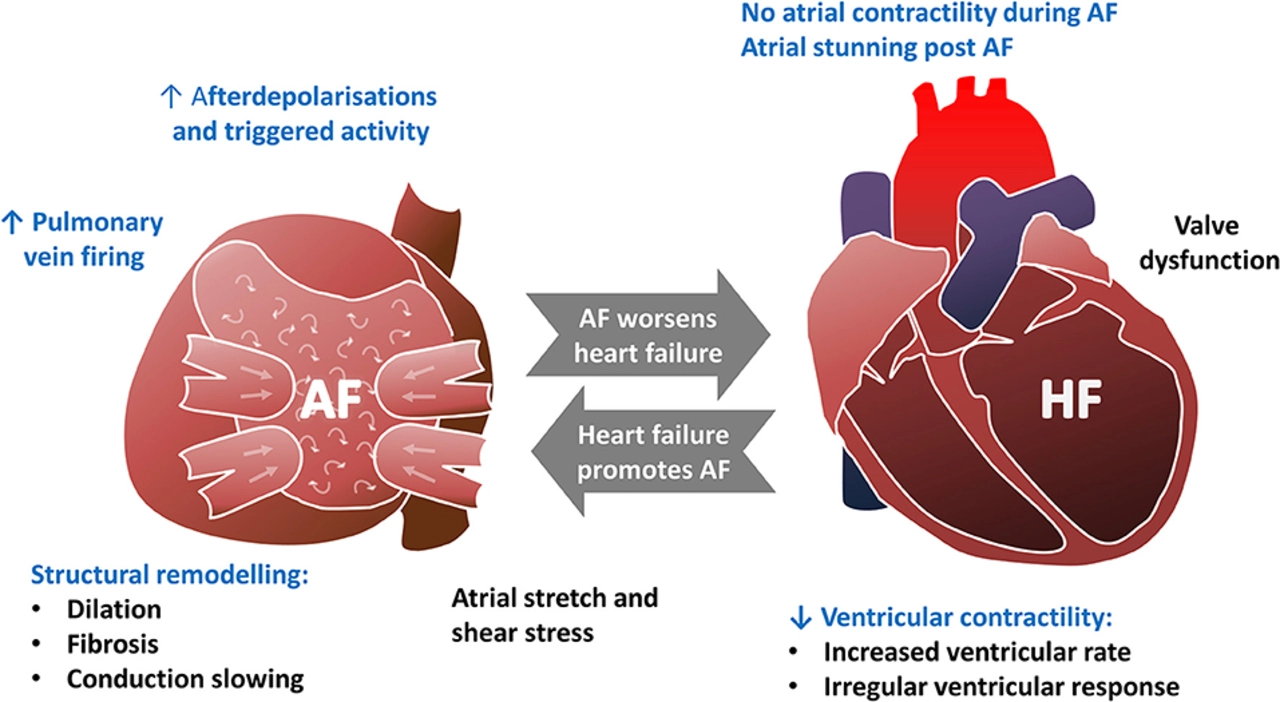
Understanding Chronic Heart Failure and its Treatment Options
As someone who has been diagnosed with chronic heart failure, it's important to understand the condition and the various treatment options available. Chronic heart failure is a condition in which the heart is unable to pump enough blood to meet the body's needs. This can lead to a variety of symptoms, such as fatigue, shortness of breath, and fluid retention. In this article, we will discuss six different medications that can help manage the symptoms and improve the quality of life for individuals living with chronic heart failure.
ACE Inhibitors: Boosting Blood Flow and Reducing Strain on Your Heart
One of the most common medications prescribed for chronic heart failure is angiotensin-converting enzyme (ACE) inhibitors. These drugs work by blocking the production of a hormone called angiotensin II, which can constrict blood vessels and make it harder for your heart to pump blood effectively. By relaxing the blood vessels, ACE inhibitors can help improve blood flow and decrease the strain on your heart. Some common ACE inhibitors include lisinopril, enalapril, and captopril. It's important to note that ACE inhibitors can cause side effects such as a persistent cough, low blood pressure, and increased potassium levels, so regular monitoring by your healthcare provider is essential.
Beta-Blockers: Slowing Down Your Heart Rate to Improve Efficiency
Beta-blockers are another important medication for managing chronic heart failure. These drugs work by blocking the effects of adrenaline on your heart, which can help slow down your heart rate and allow it to pump more efficiently. By reducing the workload on your heart, beta-blockers can help improve your symptoms and reduce your risk of complications related to heart failure. Some commonly prescribed beta-blockers for chronic heart failure include carvedilol, metoprolol, and bisoprolol. As with any medication, it's important to discuss potential side effects with your healthcare provider, which may include dizziness, fatigue, and cold hands or feet.
Diuretics: Reducing Fluid Retention and Easing Congestion
Diuretics, also known as water pills, are commonly prescribed to individuals with chronic heart failure to help reduce fluid retention and ease congestion in the lungs. By increasing the amount of salt and water that your kidneys remove from your body, diuretics can help reduce the symptoms of fluid overload, such as swelling, shortness of breath, and weight gain. Some common diuretics prescribed for chronic heart failure include furosemide, bumetanide, and torsemide. It's important to monitor your fluid intake and weight while taking diuretics, as they can sometimes cause dehydration and electrolyte imbalances.
Angiotensin II Receptor Blockers: An Alternative to ACE Inhibitors
If you are unable to tolerate ACE inhibitors due to side effects, your healthcare provider may prescribe an angiotensin II receptor blocker (ARB) instead. These medications work in a similar way to ACE inhibitors by blocking the effects of angiotensin II, leading to relaxed blood vessels and improved blood flow. Some common ARBs include losartan, valsartan, and candesartan. While ARBs generally have fewer side effects than ACE inhibitors, they can still cause low blood pressure, dizziness, and increased potassium levels, so it's crucial to remain in close communication with your healthcare provider while taking these medications.
Mineralocorticoid Receptor Antagonists: Balancing Electrolytes and Reducing Heart Strain
Another medication that may be prescribed for chronic heart failure is a mineralocorticoid receptor antagonist (MRA), such as spironolactone or eplerenone. These drugs work by blocking the action of a hormone called aldosterone, which can help balance electrolytes in your body and reduce fluid retention. By doing so, MRAs can help decrease the strain on your heart and improve your symptoms. It's important to note that MRAs can cause side effects like increased potassium levels and kidney problems, so regular blood tests and monitoring are necessary while taking these medications.
Combination Medications: Targeting Multiple Aspects of Chronic Heart Failure
In some cases, your healthcare provider may prescribe a combination medication that targets multiple aspects of chronic heart failure. One such medication is sacubitril/valsartan, which combines an ARB with a neprilysin inhibitor to both relax blood vessels and increase the levels of substances that help dilate blood vessels and reduce fluid retention. This combination medication has been shown to be particularly effective in reducing hospitalizations and improving survival rates for individuals with chronic heart failure. As with any medication, it's important to discuss potential side effects with your healthcare provider and undergo regular monitoring to ensure optimal treatment outcomes.
In conclusion, there are several medications available to help manage the symptoms and complications associated with chronic heart failure. It's essential to work closely with your healthcare provider to determine the best treatment plan for your individual needs and to monitor your progress closely. By adhering to your prescribed medication regimen and making necessary lifestyle changes, you can improve your quality of life and reduce the risk of complications related to chronic heart failure.

ACE inhibitors saved my life after my MI. Got the cough at first but switched to ARB after 3 months. No more hacking at 3am. Life changed.
Just want to say - if your doc pushes you to take these, don't fight it. They're not perfect but they're the backbone.
I mean... honestly, this article reads like a pharmaceutical brochure. Did they pay you to write this? I’ve been on 7 different heart meds in 4 years and none of them ‘improve quality of life’ - they just delay the inevitable. 🤷♀️
LMAO imagine thinking drugs fix heart failure 😂 I tried all these. My heart just got tired of the drama. Now I just eat avocado and cry into my pillow. 🥑😭
If you're on an MRA like spironolactone, get your K+ checked every 2 weeks for the first month. Hyperkalemia kills faster than you think. Also, sacubitril/valsartan isn't 'new' - it's been in ESC guidelines since 2016. If your doc hasn't mentioned it, ask why.
And no, coffee doesn't 'overload' your heart. Stop believing TikTok.
All these meds are just Band-Aids on a leaking engine. The real fix? Stop eating processed food and move. But nah, let's keep prescribing pills while the food industry laughs all the way to the bank.
i just wanted to say thank you for this post i’ve been struggling to understand all these meds and this actually made sense. i think i might have typos tho sorry 😅
You people are so naive. Diuretics cause kidney damage. Beta-blockers make you lethargic and depressed. ACE inhibitors give you angioedema and you don't even know it until you're choking. This is pharmaceutical manipulation disguised as care.
I’ve been on carvedilol and sacubitril/valsartan for 3 years now. My ejection fraction went from 28% to 52%. It’s not magic - it’s science. But you need patience. The side effects fade. The fatigue? It lifts slowly. Don’t give up after a week. Give it 3 months. I’m alive because I didn’t quit.
Also, yes, potassium matters. I eat bananas like they’re going out of style. And I weigh myself every morning. Small things. Big difference.
Sacubitril/valsartan? That’s just a fancy rebrand of an ARB with a side of experimental junk. The PARADIGM-HF trial had selection bias. And no, I’m not a conspiracy theorist - I read the supplement tables.
Bro, the PARADIGM-HF trial was massive. 9,800 patients. Double-blind. Placebo-controlled. And you’re arguing about supplement tables? You think your blog post trumps the European Society of Cardiology? Chill.
I tried ALL of these and my husband said I was a zombie. I cried every day. I stopped everything. Now I do yoga and drink bone broth. My heart feels better. Maybe medicine is the problem, not me.
OMG I JUST GOT MY NEW RX FOR SACUBITRIL/VALSARTAN AND I'M SO EXCITED I COULD CRY LIKE A BABY I'M SO GRATEFUL TO MY CARDIOLOGIST AND TO THIS POST FOR HELPING ME UNDERSTAND WHAT THE HELL I'M TAKING
It’s funny how we treat the body like a machine that needs fixing, when maybe it just needs rest, quiet, and someone to sit with it. These drugs help - I’m not denying that. But the real healing? That comes from peace. Not pills.